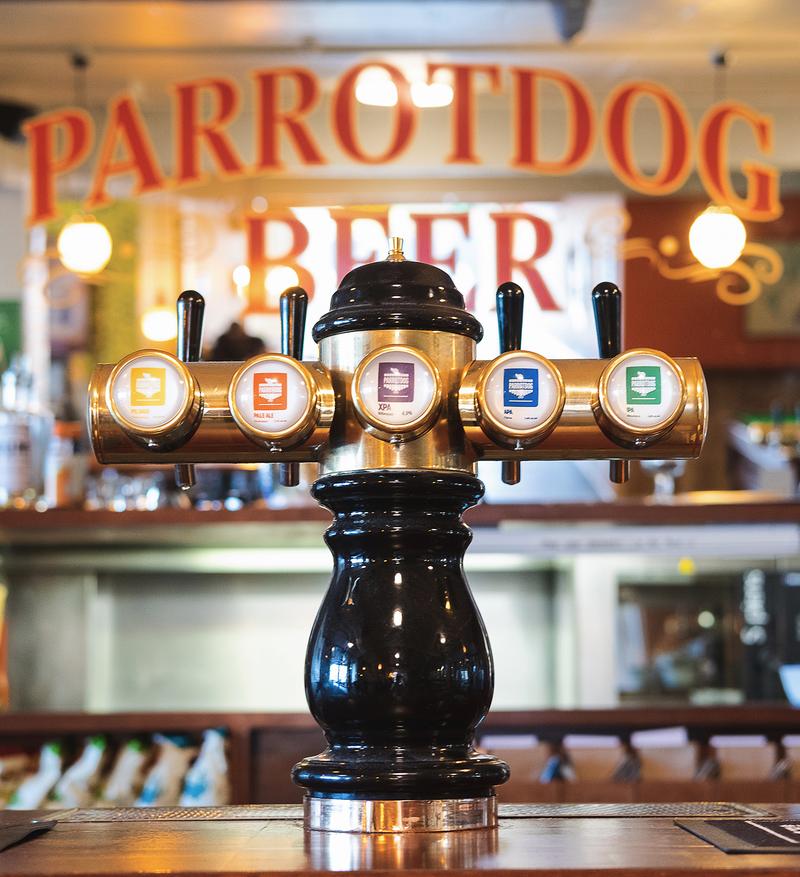In one of the biggest signs that craft beer is now a mature business, punters can buy and sell shares in Parrotdog on the open market via a new trading platform called Catalist.
There hasn’t been a publicly listed brewery in New Zealand since Moa’s inglorious NZX foray 13 years ago. DB Breweries delisted from the New Zealand Stock Exchange in 2004.
Catalist is the second licensed stock exchange platform in NZ alongside the NZX. The platform allows people to buy and sell shares. They have pitched themselves towards small and medium sized enterprises (SMEs) as a stepping-stone to the NZX. That does not guarantee Parrotdogʼs pathway to the NZX, but it might be a feasible option for the future, says managing director Paul Watson.
Most importantly for Parrotdog it allows their 1700 shareholders, who have invested over three crowd-funding campaigns to get money back for their shares, or buy more, and for new shareholders to come on board.
“One of the biggest challenges weʼve faced with our 1700 amazing shareholders over three successful capital raises is the ability to offer liquid trading — the ability to buy and sell shares,” Watson says.
Where Catalist differs from the NZX is that you can’t buy and sell whenever you want, rather investors have to wait for set trading windows.
“Catalist uses periodic auctions, rather than continuous trading like a traditional stock exchange,” Watson says. “This means that trading for specific securities happens only during designated periods (a trading window) at the end of which all trades are executed at a single price. The use of periodic auctions is designed to lessen the cost and regulatory burden for SMEs.”
Parrotdog have just concluded their first trading window. The process is slightly complicated as there are two classes of shareholders, those who hold “investor shares” and those with voting rights who hold “ordinary shares” due to The Takeover Code complications for small companies.
The long and short of it: those who bought early crowd-funding shares at $1 were able to sell them for $1.15 in the most trading window. Those who bought ordinary shares at $2.00 saw that value traded at $1.75.

Watson says they will likely open their trading window three or four times a year so future investors will need to create a Catalist account.
Based on the most recent trading window, the total values of the shares in Parrotdog is $23 million, but Watson believes the true value is slightly higher based on a formula that uses a 1.47 multiple of gross revenue. On that basis Parrotdog would be worth around $31 million, which could be achieved if all Parrotdog shares were trading a little higher.
“Our aim is to continue to strengthen Parrotdogʼs revenue and profitably to grow share price over time,” Watson said.
“We are really happy with Catalist and the outcome of the first trading window. Weʼre looking forward to future trading events and welcoming more investors to join Parrotdogʼs journey. Catalist are certainly filling that gap in the market for SMEs and growing a broader range of investment opportunities.”
One of the most revealing aspects of being on a public platform is that Parrotdog’s books are open for all to see, and they make really good reading for the industry.
The business, in its 13th year, has been profitable for the past couple of years. They returned a net profit of $675,000 and $586,000 in each of the past two financial years.
Their memorandum to potential investors showed that their flagship Birdseye Hazy IPA brought in more than $5m in revenue in the financial year ending March 2025, and in terms of individual SKUs (stock-keeping units) Birdseye 6-packs are worth more than, in order, Boundary Road Hazy Pale Ale 12-packs, Mac’s Apparition Hazy IPA 12-packs, Mac’s Slim Shady Low Carb Hazy 12-packs, and Panhead Supercharger 6-packs.
In terms of market share in grocery, Garage Project (6.9%), Parrotdog (6.7%) and Mac’s (6.7%) are all neck-and-neck behind the big three Lion (Panhead, Emerson’s), DB (Tuatara, Monteith’s) and Asahi (Boundary Road). There’s a big gap back to the likes of Moa, Behemoth, Cassels and Sawmill.